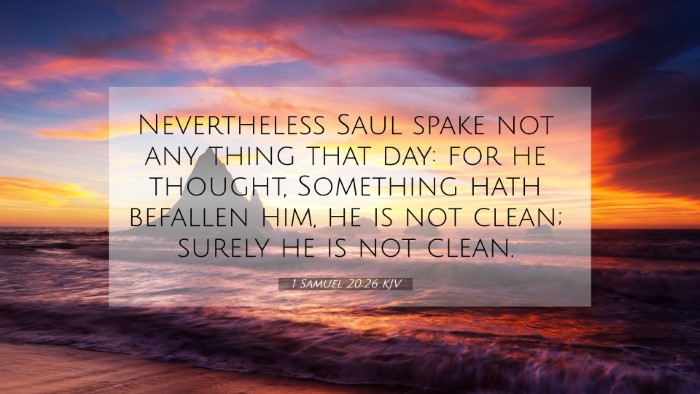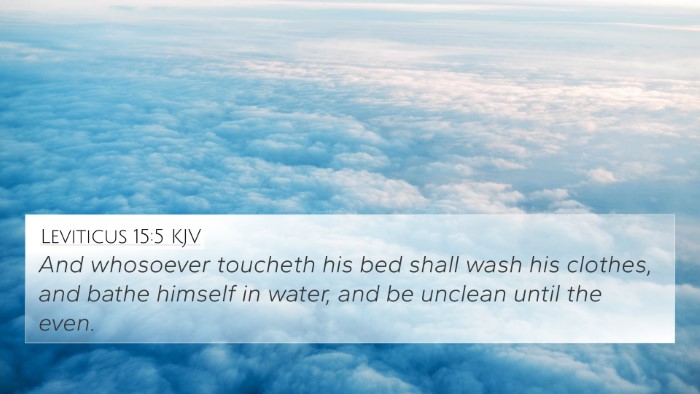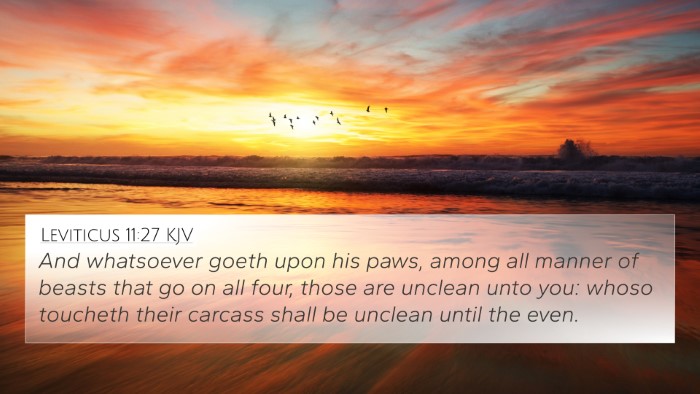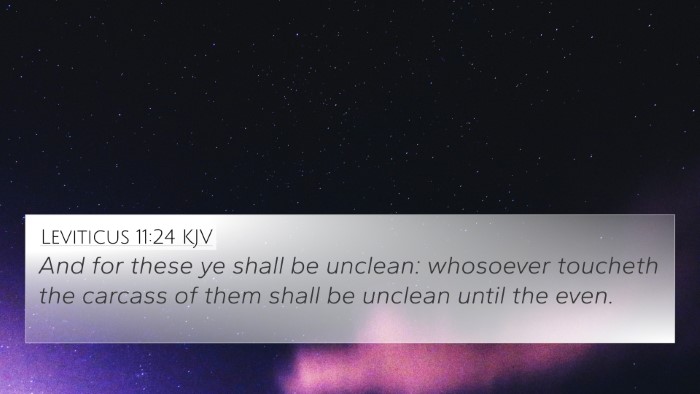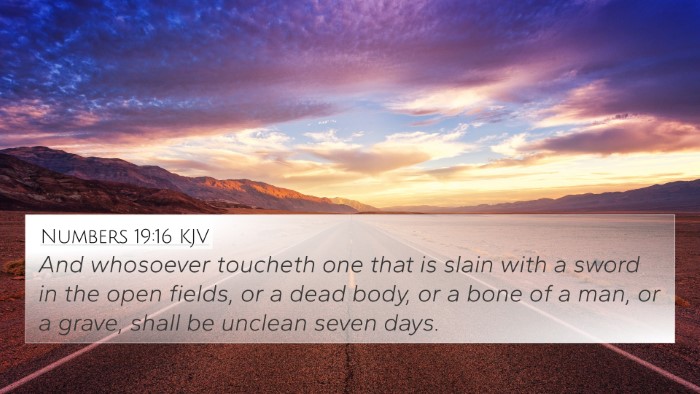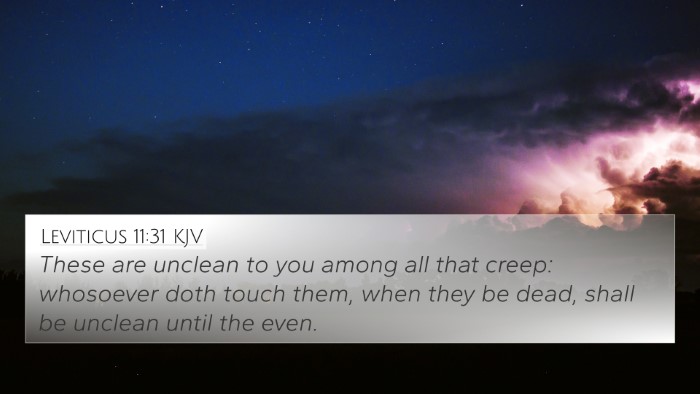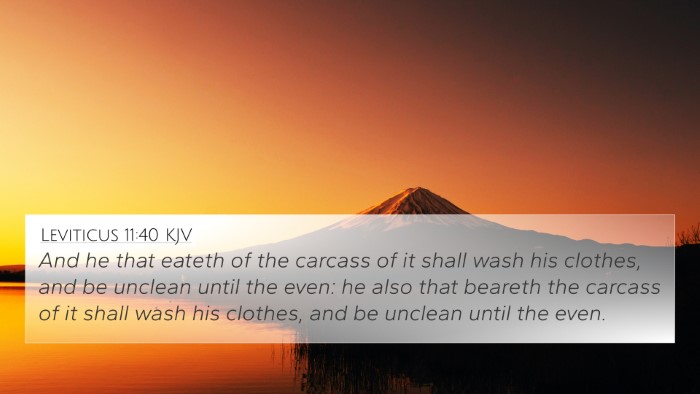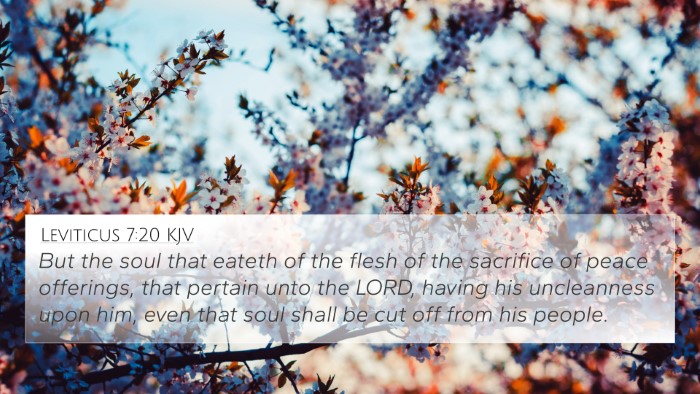Understanding 1 Samuel 20:26
In 1 Samuel 20:26, we find a narrative deep in the emotional complexity of David and Jonathan’s friendship. This verse reads:
“Nevertheless, Saul did not speak anything that day, for he thought, ‘Something has happened to the son of Jesse; he is not clean, surely he is not clean.’”
This verse reflects King Saul's suspicions regarding David's absence and highlights the tension in Saul’s relationship with David.
Key Themes in 1 Samuel 20:26
- King Saul's Paranoia: Saul's distrust and obsession with David lead him to interpret David's absence as evidence of something wrong.
- The Bond of Friendship: The relationship between David and Jonathan underscores the significance of loyalty and support amidst familial and political strife.
- Cleanliness and Purity: The concept of being "clean" or "unclean" connects to larger themes in the Bible concerning holiness and ritual purity.
Insights from Commentaries
According to Matthew Henry, Saul's reflections demonstrate his deep-seated distrust of David, which is ultimately rooted in his own insecurities as king.
Albert Barnes adds that Saul's thoughts reveal his moral decline; he uses David’s absence to feed his paranoia instead of confronting the reality of his jealousy.
Adam Clarke highlights the spiritual implications, noting that Saul’s inability to recognize David's innocence showcases a deeper disconnect from God and the moral law he was supposed to uphold as king.
Connections Between Bible Verses
This single verse opens up several connections within the biblical narrative, notably:
- Psalm 55:12-14: Here, David reflects on betrayal and friendship, mirroring his relationship with Saul and Jonathan.
- 1 Samuel 18:1-4: This passage describes the covenantal bond between David and Jonathan, emphasizing loyalty.
- 1 Samuel 19:1-3: This passage shows Saul’s outright desire to kill David but also Jonathan's defense of him, highlighting their friendship.
- Proverbs 18:24: This proverb speaks of friends who stick closer than a brother, which reflects Jonathan and David’s bond.
- John 15:13: Jesus states that a greater love has no one than to lay down one's life for his friends, echoing the sacrificial nature of Jonathan's allegiance to David.
- Matthew 5:11-12: This New Testament teaching on persecution can be connected to David's future struggles as he faces opponents similar to Saul.
- Hebrews 11:32-34: David is recognized for his faith and the trials he faced—this increases the understanding of his character amidst persecution.
Thematic Bible Verse Connections
The themes presented in 1 Samuel 20:26 also correlate with broader biblical themes:
- The Conflict of Loyalty: The tension between duty to family and friendship is a recurring theme in biblical texts.
- Persecution for Righteousness: The scripture illustrates how the righteous, like David, often face opposition from authority.
- God’s Sovereignty: Saul's insecurities and David's rise point to the overarching sovereignty of God in using flawed individuals to fulfill divine purposes.
Cross-Referencing Biblical Texts
Understanding this verse can greatly benefit from tools for Bible cross-referencing, such as a Bible concordance or a Bible cross-reference guide.
Cross-referencing helps in identifying connections between Old and New Testament teachings. It can provide insights into similar themes and reinforce theological concepts through scripture.
Conclusion
1 Samuel 20:26 offers a poignant glimpse into the complexity of human relationships, the nature of leadership, and the spiritual implications of our actions and motives.
Through careful study and cross-reference, believers can deepen their understanding of this passage and its relevance to their faith journey.


